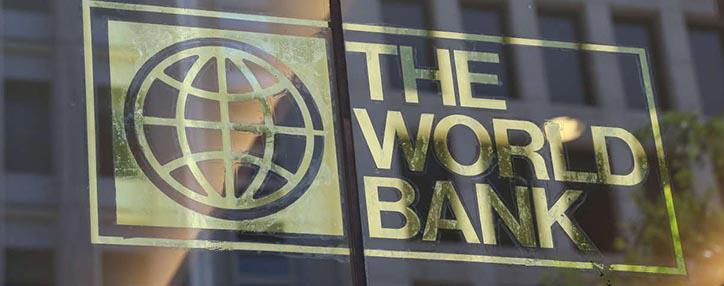World Bank’s global economic growth outlook for 2017 left unchanged at 2.7%
05.06.2017,
11:42
The World Bank left its 2.7-percent global economic growth outlook for 2017 unchanged.

YEREVAN, June 5. /ARKA/. The World Bank left its 2.7-percent global economic growth outlook for 2017 unchanged.
In its June 2017 Global Economic Prospects, the World Bank says that a pickup in manufacturing and trade, rising market confidence, and stabilizing commodity prices allow growth to resume in commodity-exporting emerging market and developing economies.
According to the WB, growth in advanced economies is expected to accelerate to 1.9 percent in 2017, which will also benefit the trading partners of these countries. Global financing conditions remain favorable and commodity prices have stabilized. Against this improving international backdrop, growth in emerging market and developing economies as a whole will pick up to 4.1 percent this year from 3.5 percent in 2016.
World Bank Group President Jim Yong Kim is quoted in the report as saying that “with a fragile but real recovery now underway, countries should seize this moment to undertake institutional and market reforms that can attract private investment to help sustain growth in the long-term”. “Countries must also continue to invest in people and build resilience against overlapping challenges, including climate change, conflict, forced displacement, famine, and disease,” he said.
“A bright spot in the outlook is a recovery in trade growth to 4 percent after a post-financial crisis low of 2.5 percent last year,” the World Bank says in its report.
“Nevertheless, substantial risks cloud the outlook. New trade restrictions could derail the welcome rebound in global trade. Persistent policy uncertainty could dampen confidence and investment. Amid exceptionally low financial market volatility, a sudden market reassessment of policy-related risks or of the pace of advanced-economy monetary policy normalization could provoke financial turbulence. Over the longer term, persistently weak productivity and investment growth could erode long-term growth prospects in emerging market and developing economies that are key to poverty reduction.”
The report highlights concern about mounting debt and deficits among emerging market and developing economies, raising the prospect that an abrupt rise in interest rates or tougher borrowing conditions might be damaging.
At the end of 2016, government debt exceeded its 2007 level by more than 10 percentage points of GDP in more than half of emerging market and developing economies and fiscal balances worsened from their 2007 levels by more than 5 percentage points of GDP in one-third of these countries. --0---
In its June 2017 Global Economic Prospects, the World Bank says that a pickup in manufacturing and trade, rising market confidence, and stabilizing commodity prices allow growth to resume in commodity-exporting emerging market and developing economies.
According to the WB, growth in advanced economies is expected to accelerate to 1.9 percent in 2017, which will also benefit the trading partners of these countries. Global financing conditions remain favorable and commodity prices have stabilized. Against this improving international backdrop, growth in emerging market and developing economies as a whole will pick up to 4.1 percent this year from 3.5 percent in 2016.
World Bank Group President Jim Yong Kim is quoted in the report as saying that “with a fragile but real recovery now underway, countries should seize this moment to undertake institutional and market reforms that can attract private investment to help sustain growth in the long-term”. “Countries must also continue to invest in people and build resilience against overlapping challenges, including climate change, conflict, forced displacement, famine, and disease,” he said.
“A bright spot in the outlook is a recovery in trade growth to 4 percent after a post-financial crisis low of 2.5 percent last year,” the World Bank says in its report.
“Nevertheless, substantial risks cloud the outlook. New trade restrictions could derail the welcome rebound in global trade. Persistent policy uncertainty could dampen confidence and investment. Amid exceptionally low financial market volatility, a sudden market reassessment of policy-related risks or of the pace of advanced-economy monetary policy normalization could provoke financial turbulence. Over the longer term, persistently weak productivity and investment growth could erode long-term growth prospects in emerging market and developing economies that are key to poverty reduction.”
The report highlights concern about mounting debt and deficits among emerging market and developing economies, raising the prospect that an abrupt rise in interest rates or tougher borrowing conditions might be damaging.
At the end of 2016, government debt exceeded its 2007 level by more than 10 percentage points of GDP in more than half of emerging market and developing economies and fiscal balances worsened from their 2007 levels by more than 5 percentage points of GDP in one-third of these countries. --0---



